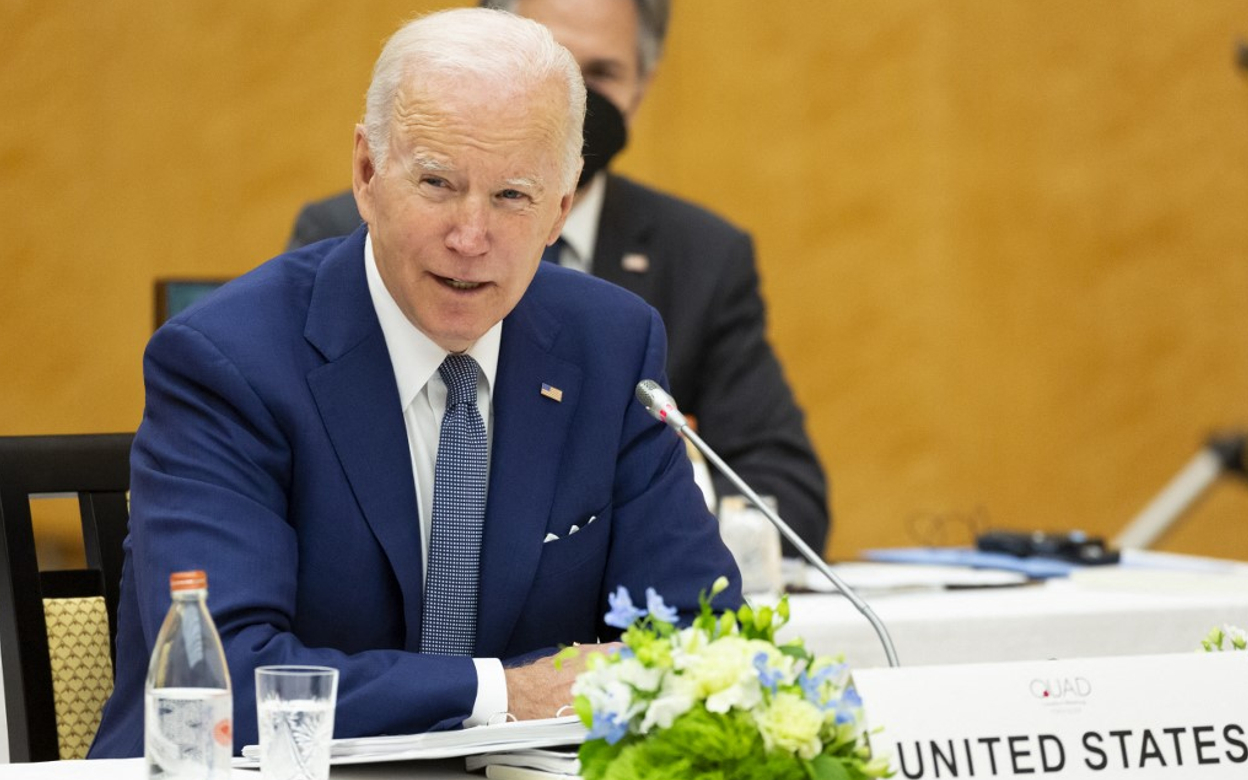
Joe Biden’s brief first visit to Asia clearly shows that in addition to the international front in Ukraine, we are also dealing with another front that is perhaps even more important with respect to policy from the U.S. superpower’s perspective, the Asia-Pacific region.
We remember how Donald Trump ridiculed his opponent during the last presidential campaign, calling him “Sleepy Joe.” But when Joe Biden became president, not only did he refrain from malicious and personal attacks, he was determined to heal painful wounds and end the deep polarization in American society.
He has not been entirely successful, and Trumpists seek a return to power. Yet, there is a noticeable change for the better that is more apparent in foreign policy than at home. And this is because Biden has upheld the principles of bipartisanship in dealing with a rapidly developing China, and, of course, Russia, America’s greatest challenge.
The president has maintained the same forceful and powerful policies that Trump initiated. In relation to China, that means continuing a “strategic rivalry” that replaced a policy of engagement. There is consensus in Washington that the U.S. should target China wherever possible.
The policy of engagement intensified during the COVID-19 pandemic, when Americans not only pursued the trade war (it’s been on the agenda since March 2018), but also went to battle over ideology and the media, and above all, over advanced technology (Huawei, 5G, TikTok). The Trump administration had already been successful in restricting the access of Chinese operators to semiconductor tools and technologies. Later, the U.S. steadily expanded its while it sought new allies in the battle. The EU-U.S. Trade and Technology Council was established, among other agencies, to work on standardizing the control of exports to China and developing artificial and other advanced technologies.
The confrontation between the superpowers accelerated again after the Russian aggression in Ukraine. It turned out that the Western world was united, and clearly under the leadership of the United States, the world’s greatest military power. Accordingly, you had to dismiss theories about the rapid decline of the West, as Moscow and Beijing asserted on Feb. 4 in a joint statement by Vladimir Putin and Xi Jinping. It has become necessary to adapt to a whole new situation, and to do so everywhere.
The U.S. decided to build new alliances, and established two military partnerships: AUKUS, with the U.K. and Australia, and QUAD, with Austria, India and Japan. President Joe Biden’s recent visit to Seoul and Tokyo, America’s closest allies in Asia and long-time home to U.S. troops, only confirms the policy shift. And Tokyo saw not only the second QUAD summit (the first one took place in September 2021 in the White House) but also the start of a new economic alliance called the Indo-Pacific Economic Framework for Prosperity. Initially it is meant to consist of 13 countries, but its structure is not firm yet, and it is naturally directed at China and the form of the cooperation promoted by such initiatives as the Belt and Road Initiative and the Regional Comprehensive Economic Partnership involving 15 countries in the region.
The growing strategic rivalry between the two largest world economies focuses on two areas: the South China Sea and Taiwan. In the case of the Taiwan, Joe Biden took an unprecedented position at a recent press conference when he affirmed that the U.S. would defend Taiwan’s sovereignty. His aides immediately clarified the remarks, emphasizing the second part of his statement in which Biden said U.S. continues to adhere to a “one China Policy,” thus, signifying the return to the strategic ambivalence that the U.S. has shown toward the island until now.
Not surprisingly, vigilant diplomats in China, which treats the independence of Taiwan as a red line, reacted immediately. State Counselor of the PRC Wang Yi, China’s lead diplomat, described the Indo-Pacific Economic Framework for Prosperity as an “initiative that will reignite antagonism” in the Asia-Pacific region. By contrast, China’s top diplomat, Yang Jiechi, warned U.S. National Security Advisor Jake Sullivan on about betting on an independent Taiwan, which China views as a downright provocation.
Biden’s short first visit to Asia confirmed one thing: He has woken up, and so has the U.S. The visit also clearly proved that in addition to the international front in Ukraine, we are also dealing with another front that is perhaps even more important with respect to policy from the U.S. superpower’s perspective, the Asia-Pacific region. And we must watch that closely as well.

Leave a Reply
You must be logged in to post a comment.